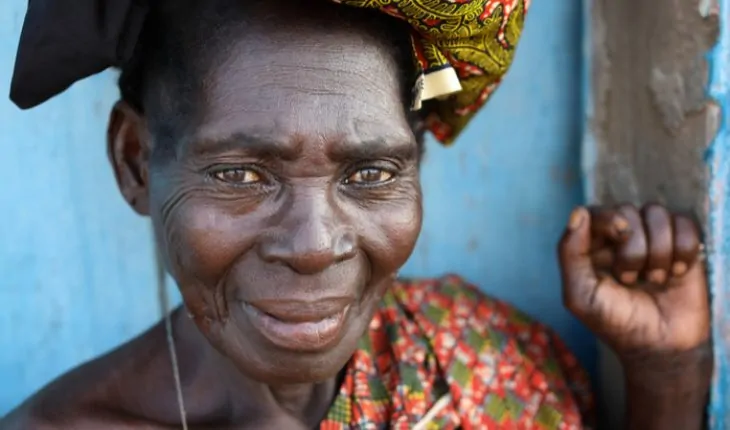Ghana has made history by becoming the first country in sub-Saharan Africa to eliminate trachoma – the world’s leading cause of infectious blindness.
In 2000, about 2.8 million people in Ghana were estimated to be at risk of trachoma. The World Health Organisation (WHO) has today (Wednesday 13th June) made the official announcement that the country has eliminated the disease as a public health problem.
“It’s been 20 years since the global health community committed to eliminating trachoma worldwide” said WHO Director-General, Dr Tedros Adhanom Ghebreyesus. “Although there’s more work to do elsewhere, the validation of elimination in Ghana allows another previously heavily-endemic country to celebrate significant success.”
According to the most recent statistics, there are around 200 million people at risk of trachoma in 41 countries, the vast majority of which are in Africa. Ghana’s breakthrough achievement shows that ending this eye disease is possible and could pave the way for many other countries to follow in its footsteps.
According to the most recent statistics, there are around 200 million people at risk of trachoma in 41 countries, the vast majority of which are in Africa. Ghana’s breakthrough achievement shows that ending this eye disease is possible and could pave the way for many other countries to follow in its footsteps.
Simon Bush, Director of Neglected Tropical Diseases for Sightsavers, said: “Through collaboration, determination and sheer hard work, Ghana has eliminated a painful eye disease which has devastated the lives of millions of its most vulnerable people for years, despite being completely treatable and preventable.
“This achievement was only possible because a global alliance worked together – from government departments, international organisations like ourselves and funders, pharmaceutical companies, and, of course, the communities themselves. It is important to celebrate this landmark in global health but the fight does not end here. Many other countries are on the cusp of elimination and must continue to push for the elimination of trachoma – and other neglected tropical diseases – across the world.”
Trachoma is an infectious condition spread by flies and human touch, linked to poverty and lack of access to clean water and sanitation. It starts as a bacterial infection and if left untreated, eyelashes painfully scratch the surface of the eye and can cause irreversible blindness.
Women like Ayishetu Abdlai, who was interviewed during Ghana’s last trachoma surgery campaign in the Yendi, are four times more likely to develop trichiasis than men. Ayishetu is a midwife who developed trachoma and was struggling to do her job and deliver the babies in her village.
Following the treatment she said: “I could help the new mothers bath their babies but I couldn’t deliver like I used to. It was hard to see the mothers in labour and not be able to help. I had difficulties in carrying out daily tasks – I could be walking and just feel blurredness, I’d stand there for some time, clearing the tears.
“I didn’t know there was a solution to this problem. When they came and told us we could be helped I was happy and I felt my prayers had been answered.”
Trachoma was eliminated in Ghana as a result of partnership between the Ministry of Health/Ghana Health Service, communities, pharmaceutical companies, WHO, funders, more than twenty NGOs and members of the International Coalition of Trachoma Control like the International Trachoma Initiative, Sightsavers, The Carter Center and USAID END in Africa with FH1360. The partners together delivered the WHO-endorsed SAFE strategy, encompassing surgery, antibiotics, facial cleanliness and environmental improvement. As a result of collaborative efforts, more than 6,000 people in Ghana had pain-relieving and potentially sight-saving surgery and 3.3 million doses of the Zithromax ® antibiotic, donated by the pharmaceutical company, Pfizer, helped to treat and protect people from infection.
- Gut microbiome could delay onset of type 1 diabetes - 3rd April 2025
- The da Vinci 5 Robot Is Set To Transform Bariatric Care: - 31st March 2025
- Beyond money: the hidden drivers fuelling child food insecurity - 31st March 2025






